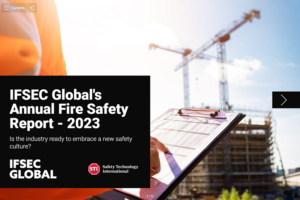In a recent case concerning a major fire, there were objections raised to the appointment of an expert witness — because he knew too much about fire safety! The case also raises a few other interesting considerations for those entering into fire-related litigation.
Lengthy process
The first thing that strikes you about the case, BMG (Mansfield) Ltd & Anor v. Galliford Try Construction Ltd & Anor, heard at the High Court, is that the parties have been attempting to reach a conclusion on liability for around nine years so far, and it still has not reached the court for the actual trial. (This particular hearing merely considered whether the claimants could change their expert witness.)
The litigation relates to a fire at a shopping centre owned by BMG, which occurred in October 2004. The allegation is that the fire spread more than it should have done because of design and build issues. Specifically, the claimants cite a lack of barriers in the eaves canopy space and various other places where passive fire protection could have been better. These core matters are, however, only likely to be decided when the case reaches court, as mediation attempts appear to have been exhausted.
The experts
BMG had originally appointed John Streeter as its expert. He had produced a report on the design issues relating to the fire and had taken part in mediation attempts. He had retired from full-time practice in 2008, and in May 2012, being at that time 69 years of age, he informed the clients that he wished to withdraw from the case.
But the defendants, Galliford Try and others, were concerned that BMG might be “expert shopping”, suggesting that they hoped to gain an advantage by switching to a new witness, Martin Edwards. Mr. Edwards, a partner in the firm of architects Probyn Miers, describes himself as “an architect, not a qualified professional fire engineer”. However, he is also a member of the Institution of Fire Engineers and states that he has “special knowledge of fire safety matters in the context of the Building Regulations and other published construction standards and guidance”.
Justice Edwards-Stuart considered that it was entirely plausible that Streeter would wish to withdraw from the case and rejected the idea that this was expert shopping. In regard to Edwards’s expertise he said:
In my judgment, the evidence of Mr. Edwards is admissible in relation to the claim against the architects because he is an architect. I do not see how his specialist knowledge of fire precautions can make his evidence as an architect inadmissible. I can see that it may be open to the architects to submit at a trial that his evidence should be given less or little weight because his ability to give evidence as to what a reasonable architect would or should do has been coloured or distorted by his specialist knowledge of fire precautions. But that is a matter that goes only to weight, not to admissibility.
Conclusions
- With the construction industry as it is, trying to pin down design and build issues to those responsible can prove tortuous. In the contract process, most parties seem to attempt to pass on or otherwise avoid responsibility for everything, and since projects are sub-contracted so extensively it becomes extremely difficult to pin the costs on anyone. The best advice to construction clients is to have very good legal cover.
- Since any similar fire litigation is likely to be drawn out, the second lesson is to plan for a 10-year process — maybe your experts should be appointed fresh out of college so that they’re still available to defend you when it finally gets to court!
- There’s a subtle lesson here in the appointment of experts — they need to be expert but not biased. But then your expensive legal team (see 1 above) will be able to sort that out for you.
For those who would like to get a better understanding of the case, full details can be found online here.
2023 Fire Safety eBook – Grab your free copy!
Download the Fire Safety in 2023 eBook, keeping you up to date with the biggest news and prosecution stories from around the industry. Chapters include important updates such as the Fire Safety (England) Regulations 2022 and an overview of the new British Standard for the digital management of fire safety information.
Plus, we explore the growing risks of lithium-ion battery fires and hear from experts in disability evacuation and social housing.
